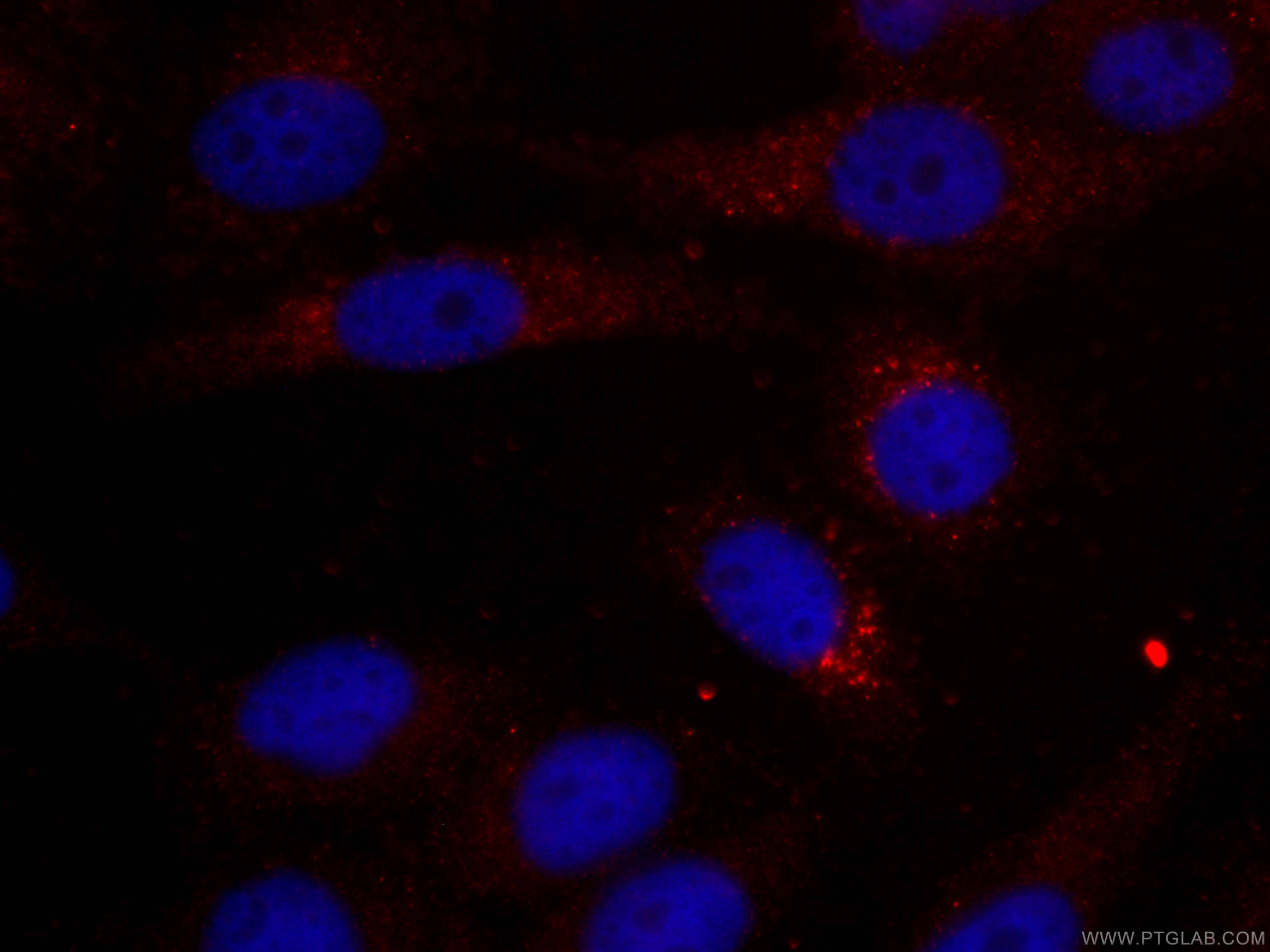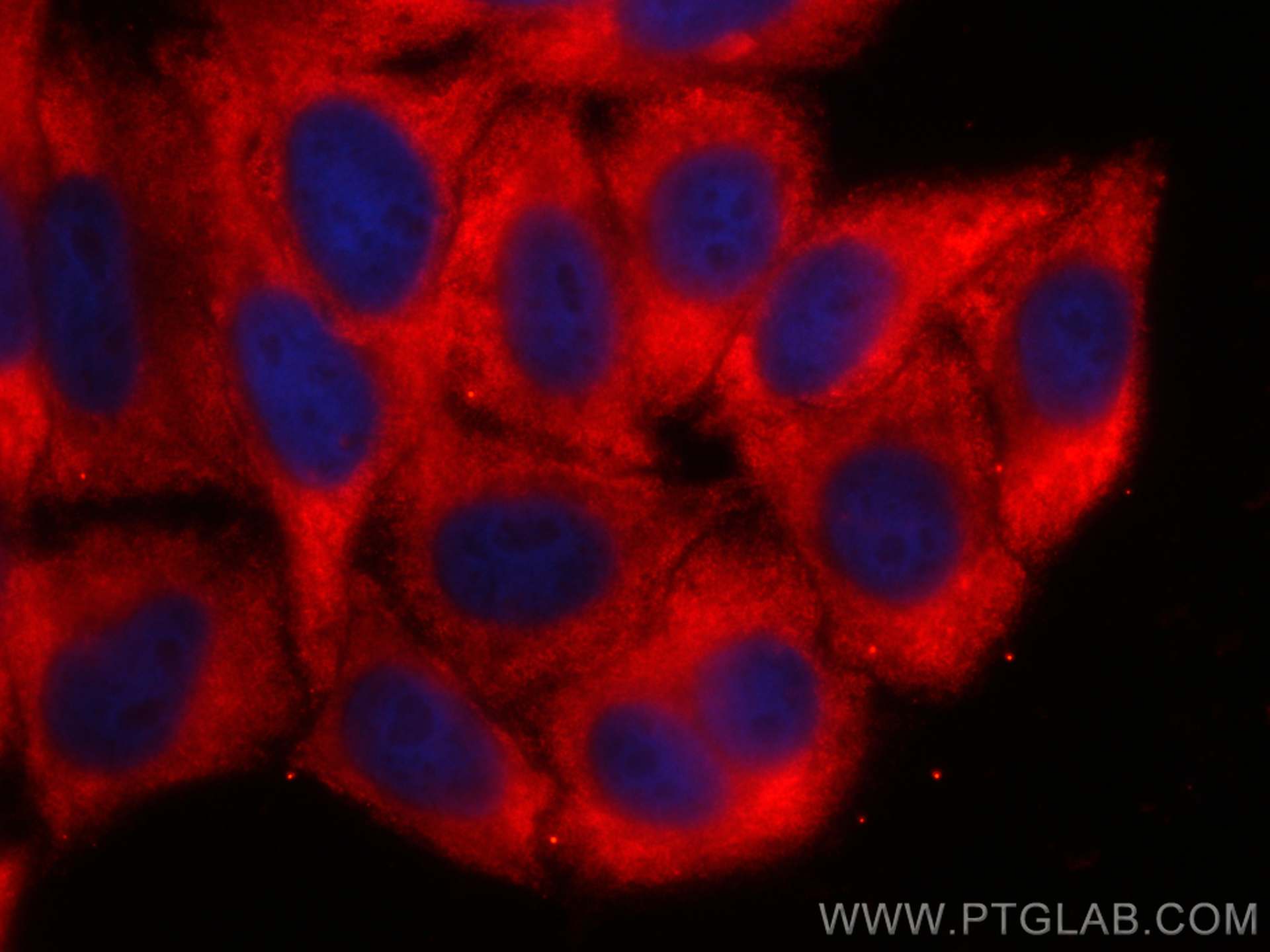Tested Applications
| Positive IF/ICC detected in | HepG2 cells |
Recommended dilution
| Application | Dilution |
|---|---|
| Immunofluorescence (IF)/ICC | IF/ICC : 1:50-1:500 |
| It is recommended that this reagent should be titrated in each testing system to obtain optimal results. | |
| Sample-dependent, Check data in validation data gallery. | |
Product Information
CL594-66197 targets IDH1 in IF/ICC applications and shows reactivity with human samples.
| Tested Reactivity | human |
| Host / Isotype | Mouse / IgG1 |
| Class | Monoclonal |
| Type | Antibody |
| Immunogen |
CatNo: Ag19293 Product name: Recombinant human IDH1 protein Source: e coli.-derived, PET28a Tag: 6*His Domain: 119-414 aa of BC012846 Sequence: RLVSGWVKPIIIGRHAYGDQYRATDFVVPGPGKVEITYTPSDGTQKVTYLVHNFEEGGGVAMGMYNQDKSIEDFAHSSFQMALSKGWPLYLSTKNTILKKYDGRFKDIFQEIYDKQYKSQFEAQKIWYEHRLIDDMVAQAMKSEGGFIWACKNYDGDVQSDSVAQGYGSLGMMTSVLVCPDGKTVEAEAAHGTVTRHYRMYQKGQETSTNPIASIFAWTRGLAHRAKLDNNKELAFFANALEEVSIETIEAGFMTKDLAACIKGLPNVQRSDYLNTFEFMDKLGENLKIKLAQAKL Predict reactive species |
| Full Name | isocitrate dehydrogenase 1 (NADP+), soluble |
| Calculated Molecular Weight | 414 aa, 47 kDa |
| Observed Molecular Weight | 46 kDa |
| GenBank Accession Number | BC012846 |
| Gene Symbol | IDH1 |
| Gene ID (NCBI) | 3417 |
| RRID | AB_2883531 |
| Conjugate | CoraLite®594 Fluorescent Dye |
| Excitation/Emission Maxima Wavelengths | 588 nm / 604 nm |
| Form | Liquid |
| Purification Method | Protein G purification |
| UNIPROT ID | O75874 |
| Storage Buffer | PBS with 50% glycerol, 0.05% Proclin300, 0.5% BSA, pH 7.3. |
| Storage Conditions | Store at -20°C. Avoid exposure to light. Stable for one year after shipment. Aliquoting is unnecessary for -20oC storage. |
Background Information
IDH1, also named as PICD and IDP, belongs to the isocitrate and isopropylmalate dehydrogenases family. It is a common feature of a major subset of primary human brain cancers. It can form a homodimer(PMID:15173171).IDH1 mutation is always heterozygotic and IDH1 functions as a dimer, theoretically there will be 25% each wild type and mutant homo-dimers and 50% hetero-dimers present in the tumor cells(PMID:21079649 ).
Protocols
| Product Specific Protocols | |
|---|---|
| IF protocol for CL594 IDH1 antibody CL594-66197 | Download protocol |
| Standard Protocols | |
|---|---|
| Click here to view our Standard Protocols |






